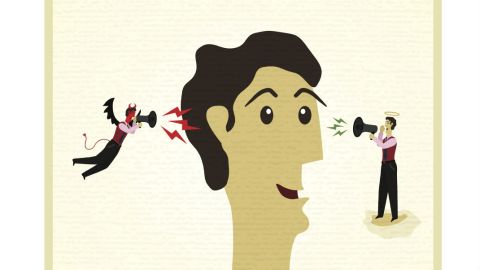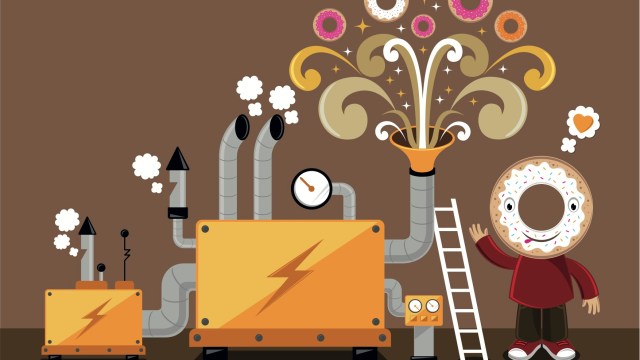How to Tame Your Inner Enemy

The greatest enemy we face – one that is indeed greater than any external threat – is the uncontrolled mind. This is the wisdom of the Buddhist master Shantideva, author of the 700 AD Sanskrit text Bodhisattvacharyāvatāra, or Guide to the Bodhisattva Way of Life.
What is the uncontrolled mind? It is the mental habit that makes you timid when it comes to dealing with certain difficult situations and also allows oppressive and frustrated feelings to build up inside you. As a result, you might “freak out” or “blow up,” becoming your own worst enemy.
In a Big Think Mentor Workshop, Robert Thurman, professor of Indo-Tibetan Buddhist Studies at Columbia University, along with the meditation teacher Sharon Salzberg, explain how this inner enemy makes you feel imprisoned. “It’s like your ego controlling you,” Thurman says. The ego can function like “an absolute self-identity center and therefore we have to obey whatever our inner voice says.”
So how do you avoid becoming an involuntary slave of your ego habit? There are a number of meditation methods. The most basic one involves counting your breath. The idea is to “learn to dismount and disidentify” from a thought, Thurman says. “Then you’ll find when you first do that you have lots of other levels of thought in your mind and there’s a plurality of voices in your mind.” This technique will free you to listen to your most practical voice.
Confront Your Inner Enemy Through Mindfulness
According to Salzberg, simply experiencing negative feelings is not the problem. Your inner enemy manifests when you act on the wrong feelings. Take anger, for example. In the Buddhist psychology anger is likened to a forest fire which burns up its own support. Anger can destroy us.
That is why Salzberg stresses the importance of learning to recognize your negative impulses early. The purpose of mindfulness training is to develop the ability to be aware of what you are feeling quickly – whether it is anger, hatred, fear or other destructive impulses. Then you might be able to delay your reaction, Salzberg says, and this will allow you to consider a response that is practical and constructive.
Sign up for a free trial on Big Think Mentor and watch Thurman and Salzberg’s Workshop here:
Image courtesy of Shutterstock





